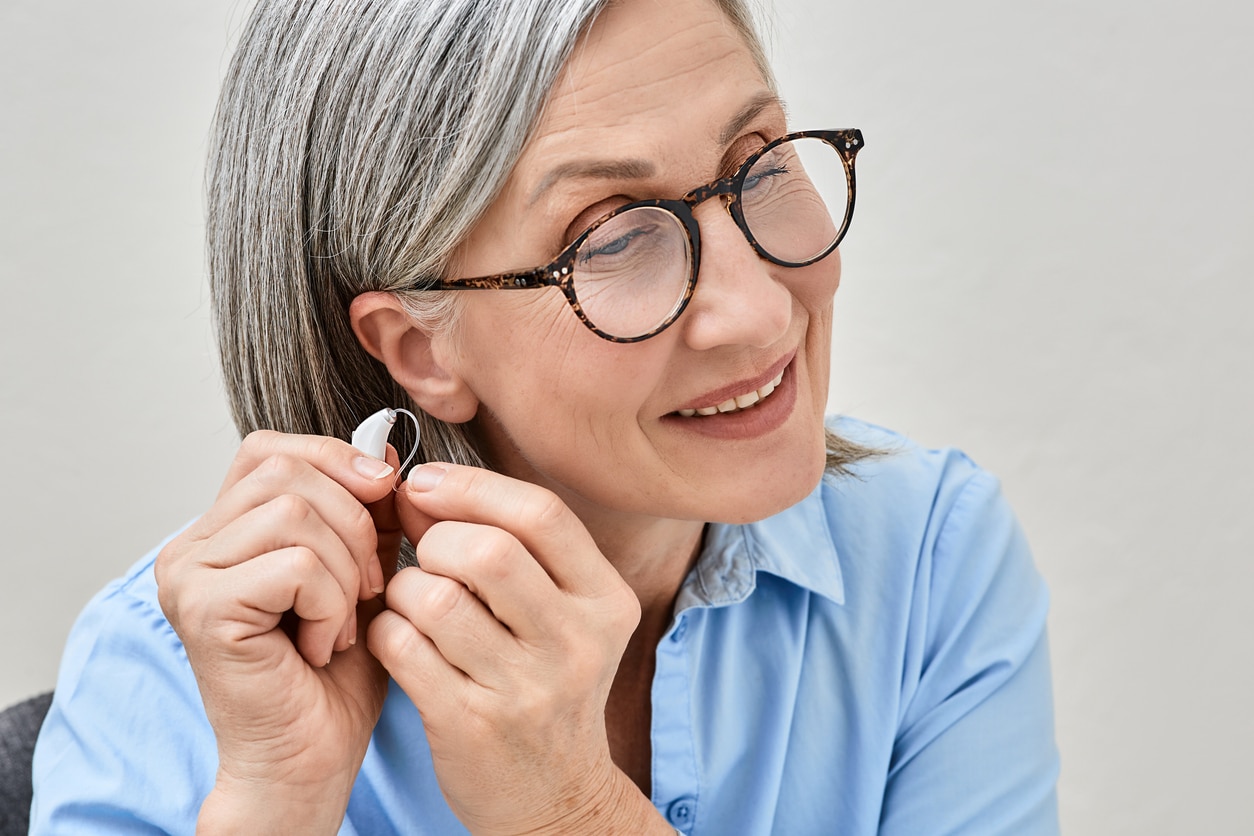Hearing aids are incredible devices that can significantly improve the lives of the nearly 20% of the global population with hearing loss. For those new to hearing aids, understanding proper care and maintenance is crucial to ensure their longevity and effectiveness. Here are some key dos and don’ts for taking care of your hearing aids.
Hearing Aid Dos

Three essential hearing aid dos include:
- Do wear your hearing aids most of the day. Wearing your hearing aids consistently allows you to get accustomed to amplified sounds. Acclimating to your new devices will improve speech recognition and reduce cognitive strain when attempting to hear. Aim for about 12 hours of wear every day with exceptions for sleeping, styling your hair, showering or swimming.
- Do clean your devices regularly. To prevent wax, dirt and debris from affecting your hearing aids, clean them daily with a soft cloth and a hearing aid brush.
- Do schedule regular audiology appointments. Regular check-ups with your audiologist are essential for adjusting and fine-tuning your devices to accommodate any changes in your hearing needs.
Hearing Aid Don’ts
Three essential hearing aid don’ts include:
- Don’t get your hearing aids wet. While most hearing aids are water-resistant, they are not waterproof. Avoid water exposure by removing them before showering, swimming at the Chickasaw Pool or joining in on sprinkler fun during summer barbeques.
- Don’t share your hearing aids. Hearing aids are customized for your specific hearing needs and ear shape. Sharing them can cause damage and increase the risk of infections due to bacterial growth.
- Don’t store hearing aids in the bathroom. While it may seem easier to store your hearing aids with your contacts, hair ties or other getting-ready essentials, bathrooms are constantly full of humidity and heat that can quickly damage your devices. Instead, store your hearing aids in a cool, dry place, preferably in a drawer away from children or pets.
Following these guidelines will help you get the most out of your hearing aids. For more information on hearing aid care, contact Premier Medical Group today to schedule an appointment with one of our specialists.